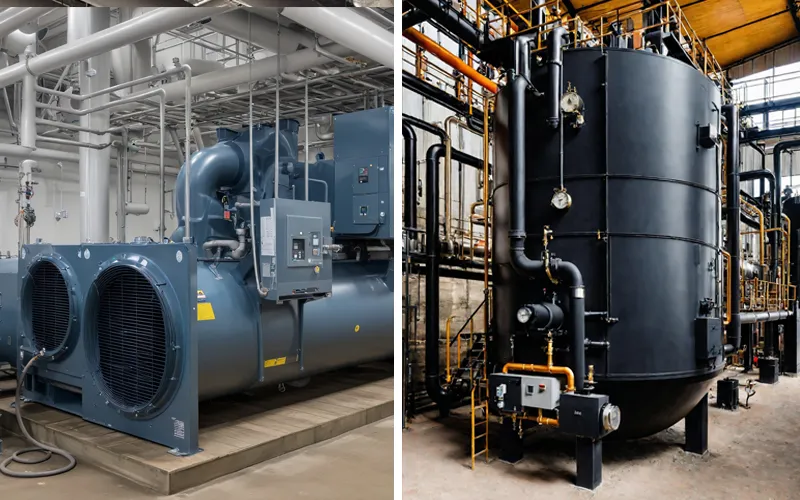
Protector Air Care provides expert HVAC plant solutions in Melbourne, delivering reliable chiller and boiler systems for modern high-rise buildings.
Selecting the right HVAC plant in high-rise commercial buildings directly affects performance, operating efficiency, and tenant comfort. Whether investing in a chiller for cooling or a boiler for heating, facility managers must align system design with climate, occupancy, and long-term sustainability objectives. Determining the most suitable option ensures reliability, energy savings, and consistent indoor conditions across multiple floors.
Understanding Chillers in High-Rise Towers
A chiller is a centralised cooling system that circulates chilled water throughout the building to absorb and remove heat. The cooled air is then distributed via ducts to maintain stable indoor temperatures. In high-rise towers with large cooling loads, chillers are particularly valuable for ensuring consistent comfort during warmer months.
For commercial towers, chillers support centralised air distribution, advanced automation, and integration with modern control technologies. Their strengths lie in energy efficiency for large-scale cooling, improved tenant comfort, and adaptability to diverse building layouts. However, investment in chillers requires significant upfront capital, additional plant space, and ongoing water treatment and maintenance commitments.
Boilers in High-Rise Towers: How They Support HVAC Systems
A boiler operates as a heating system, producing hot water or steam to warm the air and circulate it through the building. In HVAC applications, boilers provide dependable heating solutions to maintain thermal balance and create a comfortable environment during colder months.
The primary advantages of boilers include their reliability, long service life, and consistent heat output, particularly suited to colder regions. Boilers also supply hot water for commercial operations. Limitations include high energy use, reliance on fuel sources, and their inability to deliver cooling capacity.
Key Factors in Choosing Between a Chiller and a Boiler
Deciding between a chiller and a boiler depends on several operational and environmental factors:
• Climate Considerations: Buildings in cooling-dominant cities benefit from chillers, while those in colder climates rely more on boilers.
• Building Size and Occupancy: Larger towers with varied tenant demands require scalable systems that can manage heavy loads efficiently.
• Energy Efficiency and Sustainability Goals: The system should align with green building standards and emissions targets.
• Cost Factors: Beyond installation, long-term energy use, servicing, and plant maintenance must be factored into financial planning.
• Future-Proofing: Integration with renewable energy and smart building platforms enhances resilience and long-term savings.
Partner with Protector Air Care for Expert HVAC Guidance
At Protector Air Care, we deliver tailored HVAC plant solutions across Melbourne, offering end-to-end support for air-conditioning, commercial refrigeration, and energy-efficient system integration. Whether a project requires a chiller or a boiler, we ensure each system design aligns with building requirements, climate conditions, and long-term sustainability goals. Our expertise provides immediate performance benefits while safeguarding operational value well into the future.
Review our Occupational Health & Safety Policy to learn how we uphold a culture of safety on every project.
Contact us to secure reliable performance and energy-conscious solutions that meet the unique requirements of modern facilities.
Related Blog Article: Melbourne Industrial HVAC Experts: Installation, Servicing & Repairs for Large-Scale Operations
